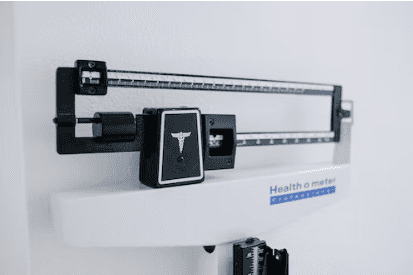Affirmations Eating Disorder Recovery
If you are struggling with an eating disorder, consider using affirmations as part of your recovery plan.

Selfpause Affirmation App
Download the app to get 1,000’s of affirmation meditations and everything you need to write, record and listen to your own.
Recovery from an eating disorder is difficult on its own, but it is possible. There are many methods of recovery, including therapy, medication, and support groups. One method that is often overlooked is the use of affirmations. Affirmations are positive statements that can help to change your thinking and improve your mood. They can be used in conjunction with other methods of treatment or on their own. If you are struggling with an eating disorder, consider using affirmations as part of your recovery plan.
There is no one-size-fits-all approach to recovery, and what works for one person may not work for another. However, affirmations can be a helpful tool for many people. If you are unsure of where to start, there are many resources available online or through your local library. You can also ask your therapist or doctor for recommendations. The most important thing is to find something that works for you and that you are comfortable with.
Affirmations can be used in any situation, but they may be particularly helpful when you are struggling with negative thoughts or feelings about yourself. For example, if you are feeling down about your appearance, you might say to yourself, “I am beautiful just the way I am.” If you are feeling anxious about an upcoming event, you might say, “I am capable and strong.” Repeating these affirmations to yourself can help to change your thinking and improve your mood.
How affirmations can help with eating disorder recovery?

Eating disorders are serious and complex illnesses that can have a profound impact on an individual’s physical, emotional, and social well-being. Recovery from an eating disorder is possible, but it often requires professional treatment and support.
One method of treatment that can be helpful in recovery is the use of affirmations. Affirmations are positive statements that can help to change negative thinking patterns and beliefs.
Some 30 examples of affirmations that may be helpful for someone recovering from an eating disorder include:
1. I am worthy of love and respect.
2. I do not have an eating disorder.
3. Recovery is possible.
4. I am strong enough to overcome this challenge.
5. I deserve to be happy and healthy.
6. My worth is not defined by my appearance or weight.
7. I am worthy of self-care and self-compassion.
8. I love and accept myself just as I am.
9. I am capable of making healthy choices for myself
10. I deserve to recover
11. My eating disorder does not have control over me
12. Recovery is a journey, and I am committed to taking the steps necessary to heal
13. I am allowed to make mistakes – this does not mean I am a failure
14. I am not alone in this – there is help and support available tome
15. I have value and worth, regardless of my weight or appearance
16. My relationships are more important than my eating disorder
17. I can express my emotions in healthy ways
18. It is okay to ask for help
19. I am capable of change
20. I will not give up on myself
21. I am lovable just as I am
22. My eating disorder is not who I am – I am so much more than this thought or feeling
23. I choose recovery
24. Today will do something to move forward in my recovery journey
25. Everydayin recovery is a success
26. Recovery means making peace with myself
27. I am enough – just as I am
28. My body is not a “problem” that needs to be fixed – it is perfect just as it is
29. Healthymoving and eating is a sign of self-love and respect
30. I am worthy of taking care of myself.
Using affirmations in recovery can help to change negative thinking patterns and beliefs about oneself. They can also help to increase self-esteem and self-compassion. If you are struggling with an eating disorder, consider using affirmations as part of your treatment plan. There are many resources available online or through your local library. You can also ask your therapist or doctor for recommendations.
If you are struggling with an eating disorder, please know that help is available. There are many treatment options and resources available to support you on your journey to recovery.
What are the Different Types of Eating Disorders?

- Anorexia nervosa is an eating disorder that is characterized by extreme weight loss and an intense fear of gaining weight. People with anorexia nervosa often have a distorted view of their bodies and see themselves as fat even when they are dangerously thin.
- Bulimia nervosa is an eating disorder that is characterized by episodes of binge eating followed by purging. People with bulimia nervosa often have a distorted view of their bodies and see themselves as overweight even when they are at a healthy weight.
- Binge-eating disorder is an eating disorder that is characterized by episodes of binge-eating without the purging behavior that is seen in bulimia nervosa. People with binge-eating disorders often have a distorted view of their bodies and see themselves as overweight even when they are at a healthy weight.
What are the Warning Signs of Eating Disorders?

There are a number of warning signs that may indicate that someone has an eating disorder. These warning signs include:
– Preoccupation with food, weight, and body image
– Extreme restrictions on food intake
– Unhealthy weight loss or weight gain
– Engaging in binge-eating or purging behaviors
– Extreme exercise routines
– Withdrawal from friends and activities
– Wearing baggy clothes to hide body shape
– Mood swings or irritability
If you are concerned that someone you know may have an eating disorder, it is important to talk to them about your concerns. It is also important to seek professional help. Eating disorders are serious mental illnesses that require treatment. If left untreated, they can lead to serious health complications and even death.
What are the Treatment Options for Eating Disorders?

There are a number of treatment options available for eating disorders. Treatment typically involves a combination of therapies, such as cognitive-behavioral therapy, psychotherapy, and nutrition counseling. Medications may also be prescribed to help treat the symptoms of an eating disorder.
Inpatient treatment may be necessary for people with severe eating disorders who are at risk for health complications or death. Inpatient treatment typically involves a team of professionals, such as doctors, therapists, and dietitians, who work together to provide comprehensive care.
Outpatient treatment is typically recommended for people with less severe eating disorders. Outpatient treatment typically involves meeting with a therapist or dietitian on a regular basis to discuss progress and goals.
Recovery from an eating disorder is possible. With treatment, people with eating disorders can learn to eat a balanced diet, manage their weight in a healthy way, and develop a positive body image. If you or someone you know has an eating disorder, seek professional help as soon as possible.
30 benefits of using affirmations as part of your recovery plan:

1. Affirmations can help to challenge and reframe negative thinking patterns associated with eating disorders.
2. Affirmations can increase self-esteem and body image satisfaction.
3. Affirmations can provide motivation to stick to treatment plans and goals.
4. Affirmations can remind you of your strengths and accomplishments.
5. Affirmations can help shift focus from weight and appearance to health and well-being.
6. Affirmations can serve as a form of self-care and promote healing.
7. Affirmations can boost mood and provide a sense of hope during difficult times.
8. Affirmations can connect you with your support network and remind you that you are not alone in your recovery.
9. Affirmations can remind you of your reasons for pursuing recovery.
10. Affirmations can help reduce stress and anxiety around meals and eating.
11. Affirmations can increase confidence in your ability to cope with challenging situations without resorting to disordered eating behaviors.
12. Affirmations can provide a sense of control during a time when many aspects of life feel out of control.
13. Affirmations can be used as a tool to promote mindful eating practices.
14. Affirmations can increase overall satisfaction with life, even during difficult times in recovery.
15. Affirming statements can serve as valuable distractions from intrusive thoughts and urges to engage in disordered eating behaviors.
16. Affirmations can help you to appreciate your body for all that it does for you, rather than focusing on its appearance.
17. Affirmations can increase gratitude and positive emotions associated with recovery.
18. Affirmations can help to normalize the ups and downs of recovery and provide perspective when progress feels slow.
19. Affirmations can serve as gentle reminders that perfection is not the goal of recovery – progress is what matters.
20. Affirmations can be used as a reminder that setbacks are a normal part of recovery and do not mean that you have failed.
21. Affirmations can help you to trust the process of recovery and have faith in yourself.
22. Affirmations can provide comfort and reassurance during times of self-doubt.
23. Affirmations can help you to remember that you are not alone in your journey – there is a whole community of people rooting for your success.
24. Affirmations can inspire you to take action steps towards your goals, even when you feel like giving up.
25. Affirmations can increase patience and understanding towards yourself as you navigate the challenges of recovery.
26. Affirmations can serve as gentle reminders that your worth is not measured by the number on the scale or your dress size.
27. Affirmations can help you to remember that setbacks are temporary and do not define your journey as a whole.
28. Affirmations can assist in developing a more positive relationship with food and your body.
29. Affirmations can provide motivation to stick to treatment plans and goals, even when progress feels slow.
30. Affirmations can serve as valuable reminders that recovery is possible and that you are worth the effort.
How important the Selfpause for Recovery

Eating disorders are serious mental illnesses that can have a devastating impact on individuals, families, and communities. Recovery from an eating disorder is difficult on its own. When you add in the shame, stigma, and isolation that often accompany these illnesses, it’s no wonder that so many people struggle to recover.
But recovery is possible. In fact, with treatment, most people with eating disorders will eventually return to healthy eating habits and healthy body weight. The key to successful recovery is early intervention and ongoing treatment.
One tool that can be helpful in treatment is affirmations. Affirmations are positive statements that help to challenge negative thoughts and beliefs. They can be used to help build self-esteem, boost confidence and promote positive thinking.
Selfpause is an app that uses affirmations to help people with eating disorders recover. The app was created by two women who have recovered from eating disorders themselves. It includes a library of over 200 affirmations, as well as a journaling feature and progress tracker.
Using affirmations in recovery can be helpful in many ways. They can help to challenge negative thinking, boost self-esteem and promote positive thinking. If you’re struggling with an eating disorder, consider using affirmations as part of your treatment plan.
Our Top FAQ's
Some common affirmations used in eating disorder recovery may include statements such as “I am worthy of love and respect,” “I am enough just as I am,” “I deserve to take care of my body and mind,” “I am capable of making healthy choices for myself,” and “I am strong and capable of overcoming challenges.”
Affirmations can be incorporated into a daily routine in several ways. For example, they can be written down and read aloud each morning as part of a daily mindfulness practice, or they can be repeated to oneself throughout the day as a form of self-encouragement. They can also be recorded and listened to as a form of guided meditation or visualization.
The potential benefits of using affirmations in eating disorder recovery may include improved self-esteem and body image, increased motivation and determination to engage in healthy behaviors, and a greater sense of control and empowerment over one’s own recovery journey.
One potential drawback to using affirmations in eating disorder recovery is that they may not work for everyone. Some individuals may find that affirmations do not resonate with them or feel genuine, and as a result they may not experience the intended benefits. It is also important to remember that affirmations should not be used as a replacement for professional treatment, but rather as a supplement to other forms of care.
Yes, affirmations can be used in combination with other forms of treatment for eating disorders, such as therapy or medication. In fact, incorporating affirmations into a comprehensive treatment plan can help to reinforce the positive messages and coping skills learned in therapy, and can provide additional support for managing the challenges of recovery. It is always best to consult with a healthcare professional when considering the use of affirmations as part of a treatment plan.
